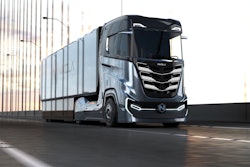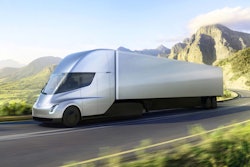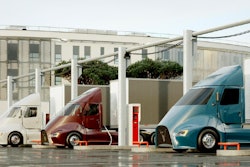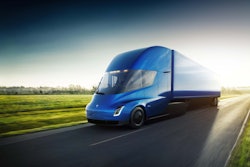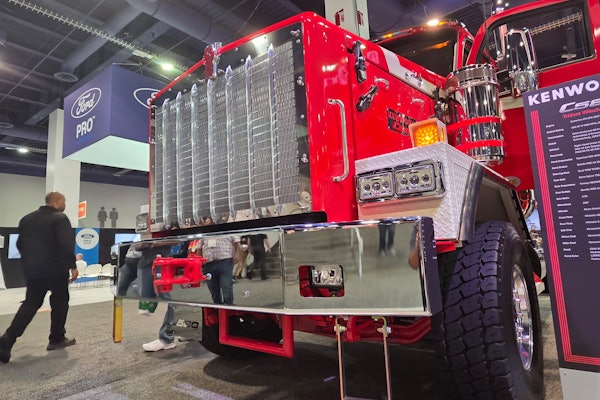Also in this series:
Paul Terry, owner of and operator for the 30-truck fleet Paul Terry Trucking, reserved 100 Nikola One tractors after the truck was unveiled in November 2016. “I wish they were here right now,” he says. “I want to quit paying the high price for diesel.”
Terry put down money for the Nikola reservations because he hopes to cut diesel volatility out of his operational costs. Though diesel prices have stayed relatively tame in recent years, he believes they’ll spike again, and the investment in the Nikola tractors will give him a leg up on competition should that happen. “I wanted to corner the market,” he says.
Terry reserved 100 – well above his current operational fleet – so he can resell them, should they become a hot commodity and availability become limited. Admittedly, however, he hasn’t decided if he will buy the trucks or lease them, as Nikola’s full-service lease is more appealing to him than purchasing them outright.
His fleet operates in the 11 Western states, and he sees Nikola’s hydrogen rig as the truck to beat in the electric market. “Until the truly electric trucks have onboarding charging systems to expand their operating range, I don’t see how there’s any other competition.”

Owner-operator Ken Bebout, who drives team with his wife, already has achieved a remarkable lifetime 9.4 mpg efficiency with the 2017 Freightliner Cascadia they drive, but he’s still interested in adopting a Nikola. He hasn’t placed a reservation but is watching the market. “If all the costs are the same, I would jump, no doubt,” he says.
Leased to Prime, he and his wife run 4,000 miles a week on dedicated routes from Texas to Ohio, Ohio to Denver, Denver to Memphis, Tennessee, and Memphis back to Texas. They considered the Tesla Semi, but “the recharge time and lack of a network” deterred them, Bebout says.
“I believe it’s better for the environment if we go to electric vehicles,” he says. “I personally don’t have a problem with stopping during my 30-minute break and recharging my truck. But we understand one of the struggles is going to be putting the infrastructure in to charge the vehicles.”
Jamie Hadden, a heavy-haul owner-operator out of British Columbia, Canada, who “typically grosses out about 138,000 pounds,” says he’s interested in electric trucks. He also is concerned about range and the ability to haul heavy loads and operate in extreme cold.
“I think the technology is viable,” Hadden says. “I think they’re ugly as sin, but they grow on you. They’re quieter, cleaner and have lots of power.” His stepdad was an industrial electrician, and he’s seen firsthand the power that electricity can generate. “It’s power on demand as long as you learn how to use them and work with them. I think the overall cost of operation will be lower with no oil changes, that type of maintenance. I don’t know if they would work in my operation, but I would give it a go.”
Hadden foresees diesel as a fuel for specialized haulers such as himself but still feels that adopting electric trucks “would be a smart decision for anybody. Otherwise, owner-operators are going to get hurt in the long run,” he says, should they be reluctant to switch from diesel.

